Editor’s Note: This piece was awarded an honorable mention in the Pulse writing contest, “On Being Different.”
Whenever the most recent piece of anti-LGBTQ legislation passes, the silence is a familiar song.
In November of 2022, we had the Club Q shooting in Colorado Springs—soon to be followed by a nonstop onslaught of legislative attacks on the LGBTQ communities’ right to exist. After each one, the silence blared.
I remember walking into work the day after the Club Q shooting. As I met my co-residents for 6:00 am patient sign-out, I felt weighed down, needing to will myself to focus. I was greeted with the usual smiles, heard the usual laughter, listened to the usual small talk. I did my best to reciprocate as I internalized a message that I don’t believe anyone intended to send: No one cares.
When it was announced that there would be a debrief on the shooting for any residents who were interested in attending, my heart leaped up; it sank again when I was the only one to show up. I continued through my workweek, surrounded by my colleagues but feeling very alone.
Sometimes that’s what being different is: being alone.
As a queer physician, I know this experience of isolation is not unique to me or my community, but though the experience may be common, that makes it no less lonely. Whether the attacks on LGBTQ people are physical or legislative, they weigh on me as I worry for my community. I carry that worry to work, and when it doesn’t even make it into the workplace conversation, I sometimes feel like I carry it alone.
Many would say, “If you want to participate in a conversation, start it yourself”—and I don’t disagree. Having thrown myself into creating dedicated space for LGBTQ residents, giving lectures on LGBTQ health, and writing testimony against anti-LGBTQ legislation, I’ve found ways to use my voice. It’s helped me to find my tireless allies and allowed me to answer questions that are asked in good faith, and it has even occasionally led to slow change for the better.
And sometimes that’s what being different is: being an educator.
In my time as a resident, I’ve watched my co-residents and faculty add pronouns to their badges; I’ve heard residents gain confidence in counseling LGBTQ patients and watched our LGBTQ patient population increase as we work toward better inclusivity. I’ve poured my energy into creating the environment for queer physicians and patients that we should already have, and I celebrate the small wins as we inch toward equity.
Of course, not everyone is receptive to my efforts. I’ve been told that my discomfort with homophobia and transphobia are simply a result of my being a “weird fit” for medicine. I’ve been told that some of my colleagues care about me, but can’t condone my choices. I’ve been told that I am just confused about my own gender identity and sexual orientation. I’ve been told that my commitment to LGBTQ health shouldn’t be forced on other physicians. I’ve been told that my concerns about my community don’t matter. I’ve had patients tell me, “I wouldn’t ever want a queer physician” when they didn’t know that I am one—and when they did. And that’s all just within hospital walls.
And sometimes that’s what being different is: being a target.
Each comment leaves a wound, but rather than expressing the anger and hurt that these ignite, I have focused the resulting energy on hours of conversation. Most of these are, quite simply, polite discussions about why my community and I have a right to exist. As a queer physician, I don’t always feel that I have the luxury of anger, because while I don’t speak for my whole community, I know that much of what I say or do will be generalized to include them. Any misstep or perceived slight could keep attitudes towards queer patients and physicians from getting better. And they must get better.
As a physician, I feel that I have a privileged window into my patients’ lives. I hear personal stories, I see trends in health concerns, and I am invited into people’s lived experience, even if only for a brief time. This can allow physicians a unique insight and sometimes lets us start to see patterns before they fully reach general medical awareness.
One such pattern I see time and again, after each new piece of anti-LGBTQ legislation passes, is an increase in the number of queer adolescents I admit to the hospital after suicide attempts. Of course, my experience is anecdotal, without documented evidence of causation, but that doesn’t change my feelings of hurt and outrage, seeing queer child after queer child coming to the hospital after deciding that this life isn’t worth living.
And sometimes that’s what being different is: bearing witness.
I feel that anger and hurt swell with every admission. I want to be able to erase my young patients’ pain, to silence their opponents and to promise them a better world. But sometimes the best I can offer is just being present.
During one such admission, a nonbinary teenager had ingested a number of medications in a suicide attempt. He’d had an extended stay in the emergency department before being admitted to the hospital medicine service to wait for a psychiatric bed. He was tired, he was miserable, and I felt I had very little to offer.
When I introduced myself as his doctor, he gave me his name and said, “I use he and they pronouns.”
The expression on their face was one that I know has often crossed my own: It was a combination of tension (was I about to say something awful?) and exasperation (how much was he going to need to explain to me?), over an undercurrent of exhaustion.
“It’s she and they for me,” I said with a grin.
I watched their tension melt away, to be replaced by relief—and, despite everything, they smiled back at me.
Because sometimes that’s what being different is: being the one that’s there to make someone else feel a little bit less alone.


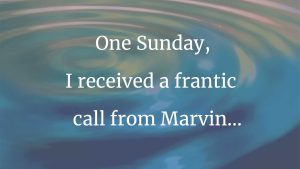
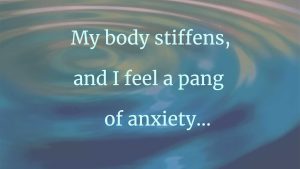
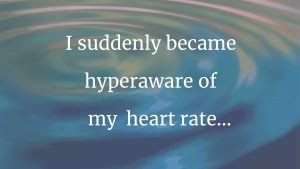

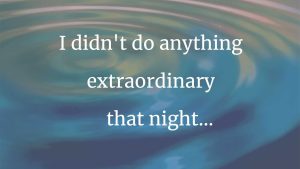
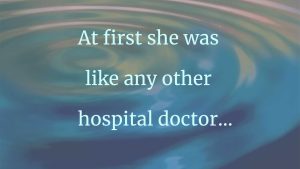
9 thoughts on “A Weird Fit for Medicine”
Great writing! You expressed beautifully how many of us feel at times. As a female, Jewish physician I too am different; in many of the ways you describe. May I add another way to be different: being a survivor. Despite the barriers we face, the loneliness, the snubs, the invisibility, the attacks, we are here. We keep reminding people that we exist, that we are important, that we deserve respect. And that every other individual does. Keep being a good physician, person, and writer. Good luck.
Dr. Damari, this piece is heartbreaking and beautiful — I’ve heard the writer and podcaster Glennon Doyle call things “brutiful,” and I think she would agree this essay is.
I volunteer with The Trevor Project and chat online with young queer kids contemplating suicide. I am so grateful you are there for those who land in your care. Please know you are not alone, and thank you for saying that knowing that doesn’t make it less painful. You are in my heart.
Keep being a witness. Thanks for this! You’ve added to this 30 year career of constant learning. Gracias!
Thank you! I will ask, “How are you doing?” more often.
Dear Dr. Damar, your essay was absolutely beautiful and you eloquently spoke a truth that is now, in these times, in this city, in this medical community, many of us feel gay and straight. We are slowly and sometimes quickly losing all the small gains we’ve made over the last 55 years. Your bravery especially with adolescents and young adults is more than admirable. Quiet or loud we need to speak.
Dr Damari, I applaud you for your writing and your compassion in your work. As a mother of two wonderful amazing queer kids I long for a more inclusive world. You and they are helping to create this , one conversation at a time. Much respect to you .
Well-written and insightful. Thank you for taking the time to educate us on this life journey.
You sound like a terrific physician, Dr. Damari; your patients and your colleagues are fortunate to have you. Gender issues in our discipline should be perceived on the same level as racism was to an earlier generation of physicians. Both ignore the dignity and humanity of the doctors themselves.
Beautiful. Thank you